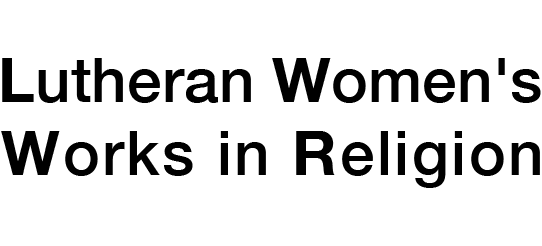Bibliography Author: Hollie M Holt-Woehl
PASTORAL CARE/THEOLOGY
Hollie M Holt-Woehl Congregations as Trinitarian Communities: Accepting, Welcoming, and Supporting People with Chronic Mental Illness., Saarbrucken, Germany: VDM Verlag Dr. Mueller 2009Holt-Woehl seeks to discover common characteristics of congregations that are accepting, welcoming, and supporting of people with mental illness. The work includes a literature review on congregations and mental illness as well as a study of six congregations. The author discovered a common view, in each congregation, that every person is a child of God and gifted by God whether or not they have mental illness.
PASTORAL CARE/THEOLOGY
Hollie M Holt-Woehl "Children of God and Mental Illness" no. 7 In Journal of Lutheran Ethics 7. 2007 http://www.elca.org/What-We-Believe/Social-Issues/Journal-of-LutheranEthics/Issues/July-2007/Children-of-God-and-Mental-Illness.aspx [The author describes the theological reflections of participants in response to the question how they thought their congregation came to be accepting, welcoming, and supporting of diversity or those with chronic mental illness. Themes include the priesthood of all believers/body of Christ, Holy Communion as a “Welcome Table” for all people, grace/gospel preaching, the theology of the cross, and simultaneously saint and sinner.
ECCLESIOLOGY AND ECCLESIAL LIFE
Hollie M Holt-Woehl "Education and Inclusive Congregations: A Study of Three Congregations" In Journal of Religion, Disability, and Health. vol. 14, no. 2, 2010 : 143-152Holt-Woehl describes the education practices of three congregations for children with developmental disabilities. All three are currently inclusive of people with developmental disabilities, both children and adults, in the education programs and life of their congregations. The author also contemplates, amid the complexity of congregational culture, how including people with developmental disabilities in religious education contributed to the creation of an inclusive congregation.
WORSHIP AND PREACHING
Hollie M Holt-Woehl "Putting on the Whole Armor of God: Preaching Ephesians 6:10–20 in a Multicultural Congregation" In Word & World. vol. 29, no. 3, 2009 : 292-299The author draws from her experience as a pastor in a multicultural congregation to engage Ephesians 6:10-20. Facing tensions and struggled both in the world and in congregations require the whole armor of God for protection, survival, and thriving.

